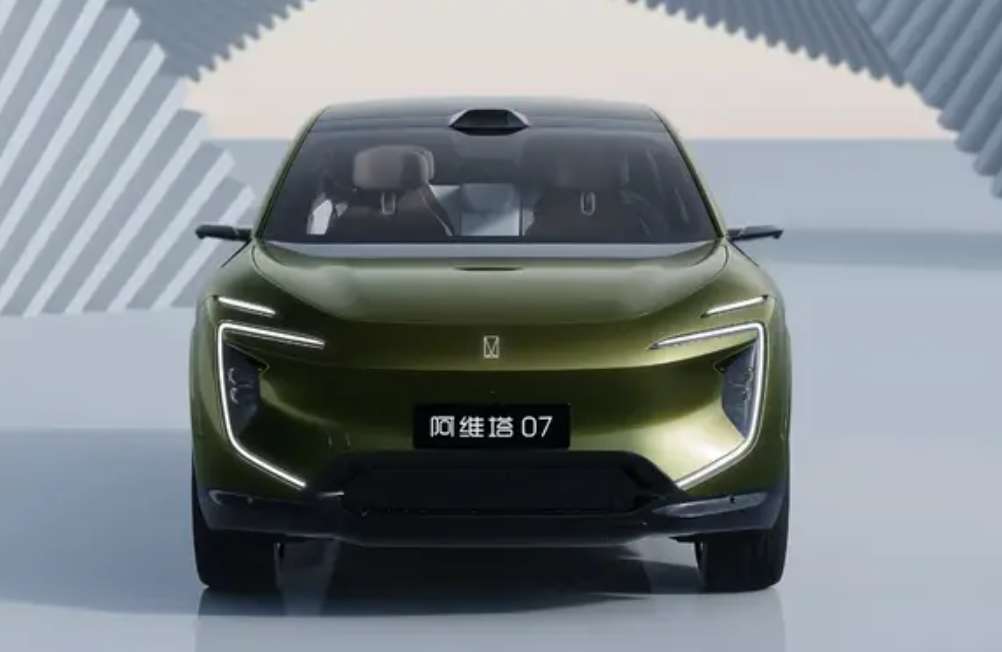Avita Secures Over 11 Billion in Funding!
Advertisements
The automotive industry is witnessing a remarkable disparity in fortunes among its players, particularly amidst the rising tide of electric vehicles. Recent headlines have been dominated by extreme shifts, especially with the instance of Jiyue, a brand that seemingly collapsed overnight. Yet, in stark contrast, Avita, another emerging automotive force, quietly celebrated the completion of an impressive funding round, raising a staggering 11 billion RMB (approximately $1.5 billion).
Avita, a high-end electric vehicle brand under the umbrella of Changan Automobile, announced on December 17 that it had finalized a Series C funding round, amassing over 11 billion RMB. This round, which saw participation from notable investors such as Changan Auto, the YuFu Fund, and several other strategic funds, showcased a robust investment team that reflects the brand’s potential and resilience.
In addition to its successful financing, Avita has also embarked on preparations for an initial public offering (IPO) projected for 2026. This forward-looking strategy is indicative of Avita’s aspirations to solidify its position in the rapidly evolving market of new energy vehicles (NEVs).
From a comparative standpoint, Avita’s situation appears relatively favorable compared to many of its contemporaries in the NEV sector. The brand began product deliveries at the end of 2022, and during 2023, it recorded a total sales volume of 29,600 vehicles—a figure that, while representing a year of successful deliveries, fell significantly short of its ambitious target of 100,000 units. As of November 2024, Avita managed to sell 62,539 vehicles, effectively doubling its year-on-year performance. Nonetheless, this was still a modest average of 5,700 units per month, leaving it considerably behind industry frontrunners.
The competitive landscape for electric vehicles is intensifying, as the market has gradually transitioned into a phase where only the most viable companies will survive. The ongoing eliminations in the industry underline a sense of urgency for Avita and others to quickly adapt and innovate.

Financially, Avita’s operations have raised eyebrows. Despite its solid backing, total sales figures for 2023 only reached 29,600 vehicles with a monthly average under 3,000. Looking ahead to 2024, the figures are certainly improving but still lag behind the benchmarks of success in an industry where an average monthly sale of over 20,000 units is considered the threshold for viability. For example, Li Auto, a high performer in the field, achieved cumulative sales of 441,995 vehicles in the first 11 months of 2024, showcasing a stark contrast to Avita’s struggles.
Adding a further layer of complexity, Avita’s financial disclosures call into question its profitability. In 2022, Avita’s revenue was merely 28.34 million RMB, with a staggering net loss of 2.015 billion RMB. While its revenue surged to 5.645 billion RMB in 2023, net losses widened to a staggering 3.693 billion RMB. The trend continued through the first half of 2024, where it posted revenues of 6.152 billion RMB and a loss of 1.395 billion RMB, and cumulatively exceeding 7.1 billion RMB in losses over the past two and a half years.
Despite these challenges, Avita's financial resilience, bolstered by its strong corporate infrastructure, notably Changan Automobile’s backing, ensures it has sufficient resources to continue its operations without immediate fear of insolvency. Historical financing rounds since 2021, which raised approximately 8 billion RMB cumulatively, illustrate a credible endorsement from investors, with Changan and other institutional players showing confidence in Avita’s long-term vision.
Recently, on November 17, Avita secured an additional significant investment of 11.1 billion RMB, which could ease its financial pressures, allowing it to invest further in research, development, and marketing efforts aimed at improving its market position.
As the electric vehicle sector pushes toward higher standards, the collapse of Jiyue on December 10 signaled a dire shift in the fate of many car manufacturers. Entrants like Weima, High, and Hengteng have all faced severe market challenges, hinting that the competition is about to become fiercer as numerous players are pushed toward the brink of expiration.
Industry analysts predict that the future landscape for Chinese automakers may coalesce into a structure of “3+3+3+3”, meaning three central enterprises, three regional state-owned enterprises, three private enterprises, and three emerging brands will dominate the scene. If this predictive framework holds true, while several brands have folded recently, the actual phase of elimination is just commencing.
To advance during this phase, brands like Avita must present significant sales figures. The automotive sector fundamentally relies upon economies of scale for sustainability. Throughout 2024, Avita has aimed to reverse its fortunes by altering its sales strategies, transitioning its operations from company-owned stores to third-party affiliates, successfully integrating 115 PMA stores and over 1,400 personnel in merely two months. Moreover, the launch of the Avita 07, positioning as a mid-sized electric SUV, demonstrates an evolution in product offering that seeks to captivate a broader consumer base.
These efforts, while not without success, yield only modest results in light of the overarching competition threshold of achieving over 20,000 vehicles sold monthly. Avita’s sales, thus, remain continuously challenged against this benchmark.
An evident gap exists not only in sales numbers but also in brand differentiation, acting as a barrier to Avita’s ascension in the market. As the industry teeters on the edge of homogenization, where vehicles are often functionally comparable with similar specifications, performance metrics, and price points, brands risk becoming indistinguishable in the eyes of consumers. Avita, despite strong affiliations with industry heavyweights like Huawei and CATL, has yet to carve out a unique identity within the high-end smart vehicle segment. While its aspirations to enhance brand recognition are underway, a distinctive market presence remains a significant challenge.
In conclusion, while Avita enjoys substantial financial backing, the brand faces an uphill battle against not only fierce competition but also the demands of creating a unique place in the market. The journey ahead is fraught with challenges that go beyond mere financing; a comprehensive strategy for market penetration, product differentiation, and an impactful brand narrative will be essential for Avita to thrive in the evolving landscape of electric vehicles.